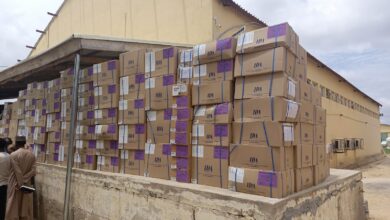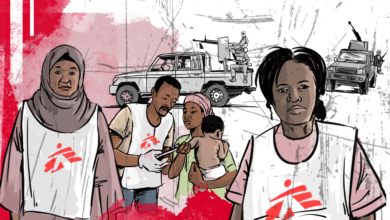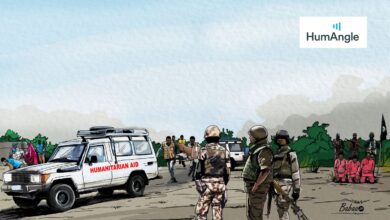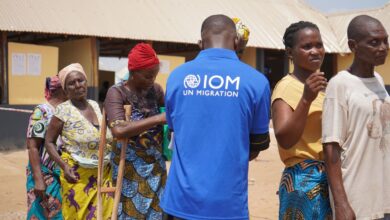UNHCR Calls For Development-Focused Aid For IDPs During Recent Visit To Nigeria’s Borno State
Amidst the global decline in funds for humanitarian aid, the Borno government and UNHCR forged an understanding of sustainable post-conflict intervention strategies.
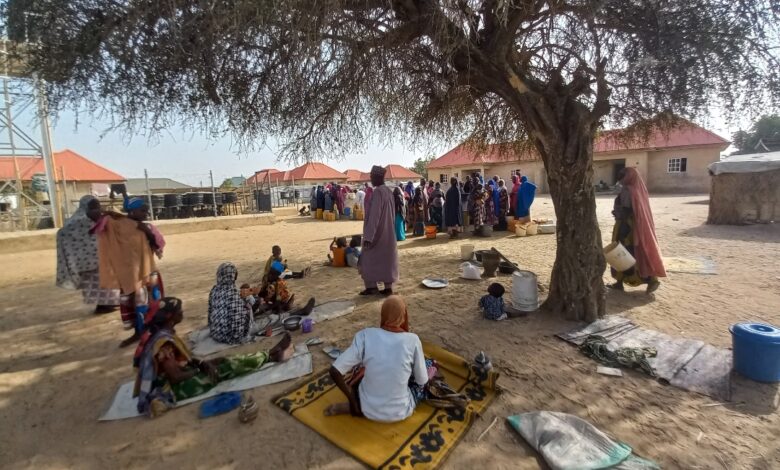
A high-level delegation from the United Nations High Commissioner for Refugees (UNHCR), led by Assistant High Commissioner for Operations Raouf Mazou, visited Borno State to discuss ongoing efforts and future strategies for addressing the plight of displaced persons.
During the visit, the delegation met with state governor Babagana Zulum, where they emphasised the need for sustainable solutions amid dwindling humanitarian resources.
“The purpose of our visit here is to meet with you [referring to the governor] and to hear from you,” Mazou said. “We have been present for a very long period of time, and over the past 15 years, we’ve seen an increase in the number of people displaced inside the state but also in neighbouring countries.”
Mazou highlighted the growing challenge of providing adequate support due to global crises. By mid-2024, the UN’s Office for the Coordination of Humanitarian Affairs (OCHA) reported that only 16 per cent of the required funding for global humanitarian responses had been secured, amounting to approximately $7.9 billion out of an estimated $48.7 billion needed to address the most urgent crises this year. This figure is 18 per cent lower than the amount raised during the same period last year.
“What we have seen here in Borno, in a number of locations, is the fact that humanitarian assistance has continued for a long period of time. And because of all the crises occurring around the world, we have seen less and less mobilisation of humanitarian resources, which has had an impact on all populations,” Mazou said.
Additionally, the Assistant High Commissioner stressed the importance of sustainable support beyond initial humanitarian aid.
“The displaced population, despite being displaced, want to be able to fend for themselves,” according to Mazou. “Even if you find yourself in a situation of displacement, if you can continue to be the farmer that you were, you want to be able to continue to play that role. And we have to be able to provide you with the support for you to be able to do so.”

Ruvendrini Menikdiwela, UNHCR’s Assistant Commissioner for Protection and a delegation member echoed these concerns and highlighted issues related to the protection of relocated IDPs.
“The ultimate form of protection is solutions—really for a refugee or an IDP to be able to become self-reliant and integrate into the community in which they have chosen to live or to which they have returned,” she said.
“One of the main goals of your functions here in Borno State is to encourage your company’s employees who are in a situation of displacement to either return to their home country or integrate with the local society. We appreciate your efforts in this regard…UNHCR is here to support and assist you in ensuring that these returns are sustainable, that individuals become self-reliant and independent, have access to services, and are fully integrated into their communities.”
Governor Zulum responded by outlining the state’s current situation and future plans.
“In 2015, there were 3.2 million internally displaced persons. Approximately 1.2 million have been resettled, while around one million remain in camps. Hunger is escalating in the IDP camps, along with growing dependency, which is unacceptable.”
Zulum emphasised that short-term solutions are no longer viable. “Any organisations, including NGOs, seeking to operate in the camps must provide both food and non-food items for at least one year before being permitted to stay and work in the camps. The focus must transition from humanitarian aid to development, with a people-centred plan led by the government.”
The governor also called for a coordinated effort with UNHCR. “We have initiated an appeal for the repatriation of our people to their communities, urging UNHCR to align with our strategies. However, the government must take charge of the intervention to preserve our integrity.”
“We express our gratitude to UNHCR for facilitating the repatriation of individuals from Cameroon and anticipate similar actions for Chad and Niger. Our partnership with UNHCR remains strong, emphasising the dignified return of individuals to their communities.”
Support Our Journalism
There are millions of ordinary people affected by conflict in Africa whose stories are missing in the mainstream media. HumAngle is determined to tell those challenging and under-reported stories, hoping that the people impacted by these conflicts will find the safety and security they deserve.
To ensure that we continue to provide public service coverage, we have a small favour to ask you. We want you to be part of our journalistic endeavour by contributing a token to us.
Your donation will further promote a robust, free, and independent media.
Donate Here

